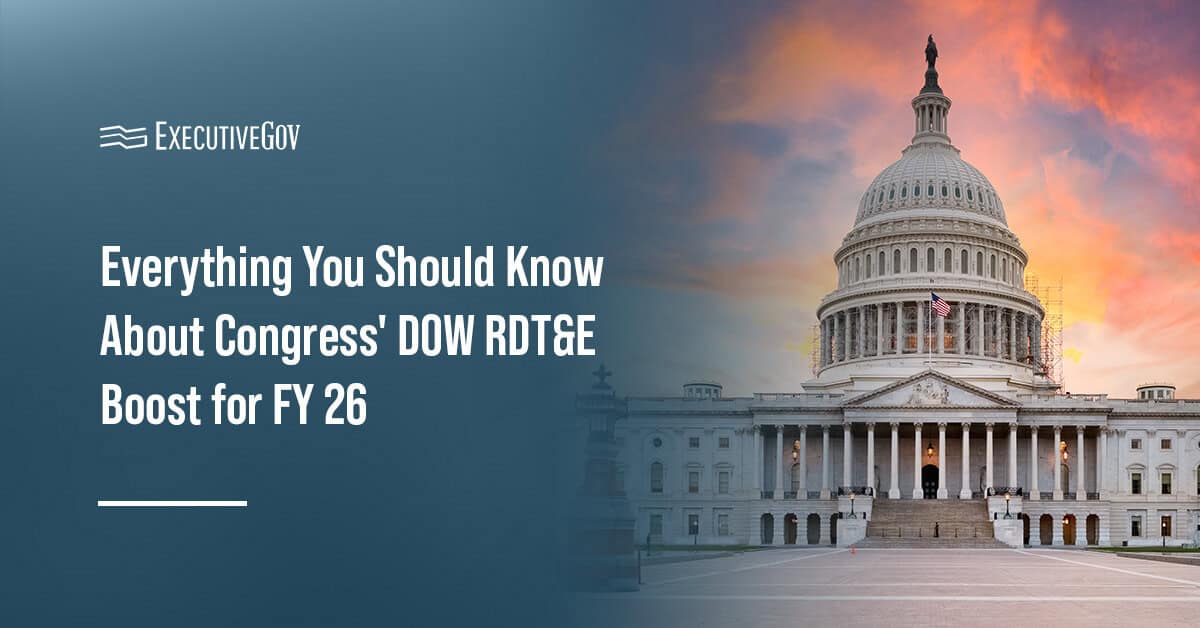As the country’s largest spender, it comes as no surprise that the federal government is a prime client that can boost the growth of any enterprise—may it be a large corporation or a small business. Comprised of federal agencies that require different kinds of goods and services to function, it is filled with lucrative business opportunities that any business can take advantage of.
However, several business owners still shy away from entering into a contract with the government due to several reasons. From the stringent application process to slow ROI, these factors can deter people from entering the government contracting industry.
Will the pros of government contracting outweigh its cons? Or is it the other way around? 
Table of Contents
Pros of becoming a government contractor
1. Lucrative business opportunity
The billion-dollar government contracting industry is brimming with contract opportunities—and every year, the total federal dollars for government contracts increases significantly. In 2020, the federal government awarded $682 billion worth of contracts, another record-high from 2019’s $599 billion. What is noteworthy about that record-breaking number is that this was achieved during the height of the COVID-19 pandemic.
Despite fighting off a global health emergency that heavily impacted America’s economy, the government contracting remained pretty stable—and even grew stronger above it all.
According to an industry forecast by the Senior Vice President for Information Solutions of Deltek, Kevin Plexico, this upward trajectory is also predicted to be sustained in the coming years. According to the forecast, there will be four trends that will significantly impact the course of the government contracting industry. In 2022, it is predicted that the government will enforce stricter contract requirements in light of the pandemic, and there will be an increase in the federal budget for its agencies. Furthermore, the forecast also states that the government will avail more consolidated contracts, and focus on small businesses in the industry.
With America recovering from the devastation of the COVID-19 pandemic and the government contracting industry starting to gain momentum, this might be your perfect window to enter the field. Here is a beginner’s guide for federal contractors to get you started.
2. More opportunities for small businesses
When the industry is dominated by giant conglomerates in different fields such as healthcare, defense, construction, and IT, entering the industry can be overwhelming, especially if you are still a small business. But, thanks to the ongoing efforts of the federal government and the Small Business Administration, there are now policies and federal regulations in place to level the playing field for small disadvantaged businesses.
The SBA also maintains the 8(a) Development Program, a federal program that provides support to small disadvantaged businesses. So, for example, if you manage a women-owned small business or any other small enterprise that falls under certain socio-economic disadvantages, you can apply for assistance under this program. Under the 8(a) Development Program, qualified small businesses can enjoy privileges such as:
• Qualify and compete for exclusive small business set-aside contracts
• Receive free technical training and one-on-one business development assistance
• Participate in SBA’s Mentor-Protégé program
• Network with industry experts who can guide you through the government contracting process
3. Diverse projects to bid for
For the federal government to remain 100% operational, its federal agencies should be well resourced with funds, human resources, and supplies. And that is why the federal agencies mobilize federal contractors to avail their goods and services—from purchasing office and stationery supplies to procuring logistics to transport COVID-19 vaccines.
Since every federal agency functions differently, they require various products and services, too. And that is why with government contracting, you can almost always find a government buyer who will be interested in doing business with you. But as a prudent business leader, you have to make sure whether the federal marketplace demands whatever you offer. For starters, you can explore the U.S. government’s spending trends at USASpending.gov.
4. Long contract periods
You will undoubtedly spend a significant amount of time preparing for a government contract, from bidding to waiting for a response. But in the end, it will be all worth it since a government contract usually lasts for a long time. Depending on the nature of the federal contract, the timeframe can last up to a year to three years.
But not only that! If the federal government is satisfied with your service, they can also choose to extend your contract with them.
5. Assured payments
For contractors, and even freelance employees, delayed payments by the clients are always a problem in the industry. But fortunately, the federal government has an excellent track record for paying its contractors on time. The payment terms and conditions are stated in the government contract, and the federal government will follow through with it all.
As a public entity, the government is tied to several laws and policies to ensure transparency and just taxpayer dollars.
6. Transparency
The resources used to fund the government contracts came from taxpayer dollars. And that is why the federal government upholds transparency in every transaction. You can view every awarded government contract at the USASpending.gov website.
Additionally, you can also debrief with the procurement officer if you bid for a contract but lose. They can offer you insights regarding the areas of your proposal where it needs improvement and why the government did not consider your proposal for the contract.
Cons of becoming a government contractor
1. Steep learning curve
You have to navigate through a series of complicated processes to become a federal contractor—from preparing your requirements to filing your proposal for a contract bid. And, you have to do all of that while running your business at the same time. Being a business leader and a government contractor can easily overwhelm anyone. And that is why the federal government and its partner agencies have launched different initiatives to assist aspiring government contractors in their journey towards the industry.
Among the government initiatives are the Procurement Technical Assistance Centers (PTACs). Headed by the SBA, PTACs offer support and valuable learning resources for government contractors. You can consult your local PTAC to seek guidance in assessing your readiness to enter the industry, registering to become a qualified contractor, evaluating your eligibility for small business programs, and more.
2. Unexpected budget cuts
Several factors can affect a federal agency budget, such as national emergencies and crises, like the COVID-19. Although the national budget is already set before the fiscal year kicks in, there will be times when the government can cut down the spending dollars for federal contracts.
3. Lack of Stability
Although most government service contracts last for quite a long time, it still doesn’t change the fact that your business relies on a per-contract type of project. There may also be times when the federal agency will cancel the contract midway through the project due to unforeseen circumstances.
4. Slow profit growth
To become successful in this industry, you have to roll up your sleeves and work. On average, you need at least a year to prepare for your entry into the industry—from learning the ins and outs to bidding for your first government contract. On top of that, you also need to consider the time you will be spending in seeking contract opportunities, submitting contract proposals, and waiting for the federal agency’s response.




